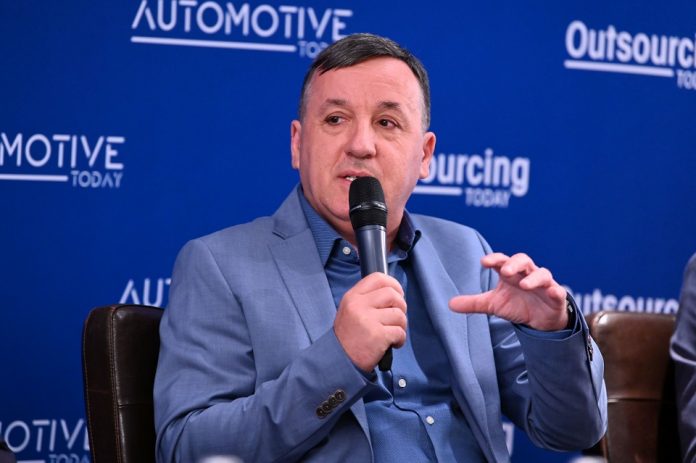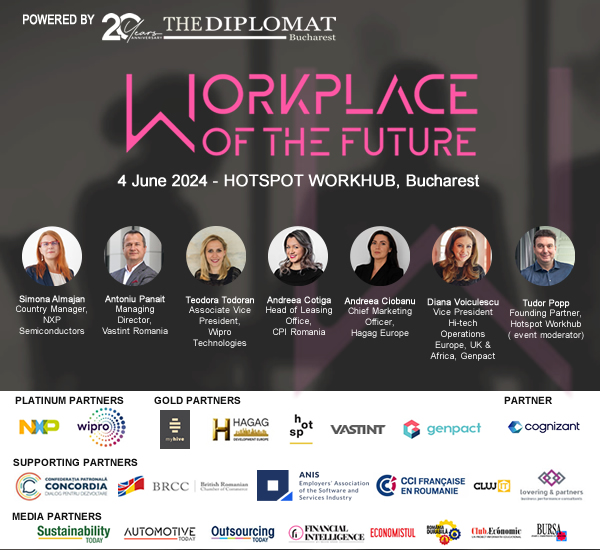“Talking about circular economy, we have few main directions to follow: eco-design, lower pollution energy and waste separate collection. Romania should focus more on eco-design and waste separate collection since we are far behind. If eco-design is problem to be addressed to whole EU community in order to have same rules in entire EU market, waste separate collection is a chapter where we are far behind many EU countries and a lot of resources are wasted because of slow implementation of separate collection system and missing of discipline measures,” Cristinel Dobrota, Deputy General Manager at Romcarbon, told Sustainability Today.
“Circular economy requires a full commitment of all stakeholders, entire population. Unfortunately, we need to be aware that we cannot count on voluntary implementation of circular economy, no matter how many private commitments we have, it is necessary, and it should become a way of living. We do not have to regard the necessary measures to be taken and influencing our life as a sacrifice, this is just a new way of living, a healthy one if we think of the next generations.”
How can Romania accelerate its transition to a circular economy? Why is this important for the country?
Circular Economy is crucial for whole EU community, not only for Romania, in line to achieve the goal of neutral balance of GHG by 2050. It should be a worldwide commitment, GHG does not stay over the country or region where are emitted and have a global influence. EU should function as an engine to pull all the other countries collaborating with us to the same direction. For the time being, as a first step, Romania should accelerate to come to same level of circular economy like other EU countries are and I am talking about waste management and public transportation. According to Eurostat, circularity level in EU is about 13%, unfortunately in Romania is about 3%. Romania can accelerate if whole government, not only ministry of environment, will treat this as main priority and stop thinking that eco-design means automatically higher cost or “we cannot impose discipline measures in waste separate collection because our life standard is lower than other EU countries and will become a burden for population.”
In your perspective, which should be the focus of Romanian authorities regarding the circular economy?
Talking about circular economy, we have a few main directions to follow: eco-design, lower pollution energy and waste separate collection. Romania should focus more on eco-design and waste separate collection since we are far behind. If eco-design is problem to be addressed to whole EU community to have same rules in entire EU market, waste separate collection is a chapter where we are far behind many EU countries and a lot of resources are wasted because of slow implementation of separate collection system and missing of discipline measures.
What are the initiatives of Romcarbon to improve Romania’s circular economy?
Romcarbon group is a plastic converter company and in the meantime plastic waste recycler, we processed in 2022 about 16.000 tons of plastic and we recycled about 12.000 tons of plastic waste. We already started implementing the concept of circular economy since we are recycling a significant quantity of post-consumer waste, transforming them in high quality recycled raw material for high end applications, besides this, our packaging sector developed, together with our customers, products made of recycled material or products with recycled content. Complementary to these measures we already started investments in photovoltaic energy.
What kind of policies and initiatives should be tackled more to generate the strongest impact in terms of reducing waste and creating a stronger green environment?
I would like to point out three initiatives need to be tackled: eco-design, single use packaging and overpackaging. As above mentioned, eco-design is a key factor in achieving circular economy. I would like to explain what it means eco-design. When a new product is designed it should be taken into considerations the followings: the size of product/package (the new EU regulation is trying to limit this), the product/package to be reusable and to be reparable and in the end designed for recycling. Every product which is manufactured should observe the principle “design for recycling” because no matter which material is made of it have a certain lifetime and, in the end, it should be recycled. Any details it matters when it comes to recycling, like mass printing or mass coloured and mixture of materials. Other challenges we observe today in the market are single use packaging, no matter which materials are made of, which encourage he population to take and throw and the last challenge is overpackaging made for commercial purpose only. By solving these problems, we could significantly reduce the quantity of waste generated. In fact, commercially orientation of packaging is a global problem and should be tackled at EU level.
What are the priorities and objectives of Romcarbon for the Romanian market in 2023 and 2024?
Romcarbon’s priorities are focused on recycling activity and sustainable packaging, where we have projects to increase the capacity and expand our portfolio of products to high quality recycled materials, and in the direction of offering to the customers sustainable packaging, which means recycled or with recycling content, we try to be one step ahead in line with market tendency and EU regulation which is coming.
What are your main concerns for the foreseeable future?
The main concern is related to the energy market. We have the Green Deal for 4 years already but unfortunately, we did not take serious actions in this direction, except the CO2 certificates which contributed to price explosion, I am talking about EU not particularly Romania. The main topic today is solar energy as “green energy” and as a saver but is this the truth? What we know is that, for industry, solar energy is a very limited option since industry is consuming energy 24/7 and storage is not a realistic option and we do not know how ecofriendly it is, for houses it could be a much better option if the system is equipped with energy storage. We still do not know how much solar energy our national grid can afford to compensate. Unfortunately, energy consumption it will not be lower in the future since the developing, no matter we talk about digitalisation or AI, is require energy, the poor countries development will require energy. That is why the energy sector is the main concern and energy is one of the main contributors of GHG, unfortunately.
What message would you like to convey to the stakeholders regarding the circular economy transition?
Circular economy is requiring a full commitment of all stakeholders, entire population. Unfortunately, we need to be aware that we cannot count on voluntary implementation of circular economy, no matter how many private commitments we have, it is necessary, and it should become a way of living. We do not have to regard the necessary measures to be taken and influencing our life as a sacrifice, this is just a new way of living, a healthy one if we think of the next generations.




